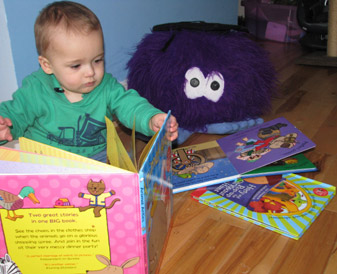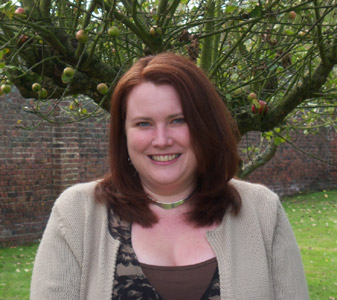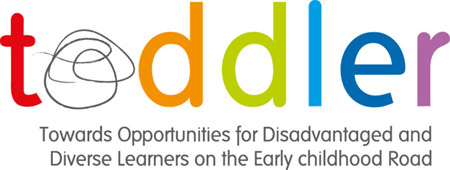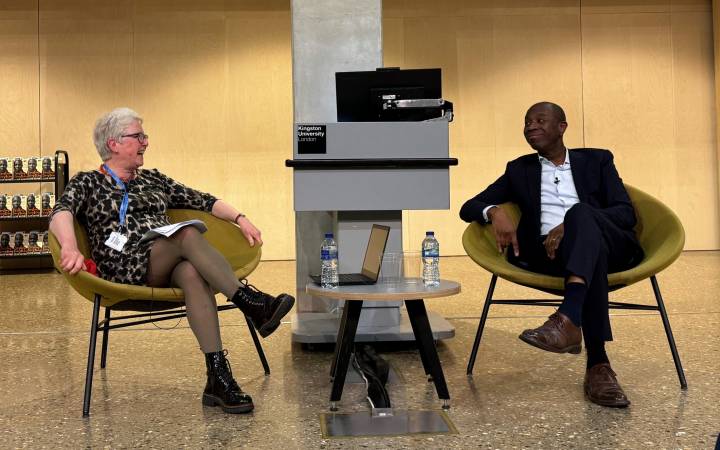Research to help toddlers reach full potential
Posted Thursday 27 January 2011
 The education and care toddlers (18-36 months) receive in their early years can help determine their life chances. A team from Kingston University is aiming to enhance research in this area with a three-year cross-European study, thought to be the biggest of its kind, that will examine how toddlers can be given the best start in life.
The education and care toddlers (18-36 months) receive in their early years can help determine their life chances. A team from Kingston University is aiming to enhance research in this area with a three-year cross-European study, thought to be the biggest of its kind, that will examine how toddlers can be given the best start in life.
Early years' lecturers Helen Sutherland and Jan Styman from the School of Education will be investigating nurseries, play groups and children's centres across England to try to find which approaches give youngsters aged 18-36 months, particularly those from low income or migrant families, the best chances in life. Their findings will be brought together with research conducted in seven other countries to present recommendations on improving early years' education. Training courses and teaching materials, including online and other packages, will be produced to help teachers and carers, both established professionals and students, to implement the findings. Areas of improvement for each country will be identified as well as European-wide examples of the best ways of improving toddlers' well-being and language skills.
The project, known as 'Toddler' - Toddler Opportunities for Disadvantaged and Diverse Learners on the Early-childhood Road, has been awarded €300,000 by the European Commission's Lifelong Learning Programme. The European Union has identified pre-primary education as one of its priorities because of its importance in establishing the basis for further learning, preventing children dropping out of school and raising the life chances of poorer children.
 Miss Sutherland, a former nursery nurse who has worked in early years' education for more than 20 years, hopes the project will give professionals a better understanding of how toddlers can reach their full potential. "We'll be looking at factors that help toddlers achieve emotional well-being, including their environment, the kind of support they receive from professionals and parents and how they learn to talk," she said.
Miss Sutherland, a former nursery nurse who has worked in early years' education for more than 20 years, hopes the project will give professionals a better understanding of how toddlers can reach their full potential. "We'll be looking at factors that help toddlers achieve emotional well-being, including their environment, the kind of support they receive from professionals and parents and how they learn to talk," she said.
The importance of early years' education was often neglected in the United Kingdom because there was no legal requirement to educate children until they reached the age of five, although the Government funded nursery places for three and four year olds, she said. "The years between birth and five are formative ones which can give children lifelong skills which allow them to learn and develop," Miss Sutherland added. "We hope this project will help give toddlers the kind of opportunities that will help them get the best out of life as well as raising the standing and understanding of early years' practitioners."
The project is being led by the University of Stavanger in Norway and also involves University College-Syddanmark Esberg-Haderslev (Denmark), West University of Timisoara (Romania), University College Arteveldehogeschool (Belgium), Pädagogische Hochschule Schwäbisch Gmünd (Germany), Instituto Poliécnico de Santarém (Portugal), Universitat Ramon Llull (Spain) and Haute Ecole Libre Mosane (Belgium).
Contact us
General enquiries:
Journalists only:
- Communications team
Tel: +44 (0)20 8417 3034
Email us



